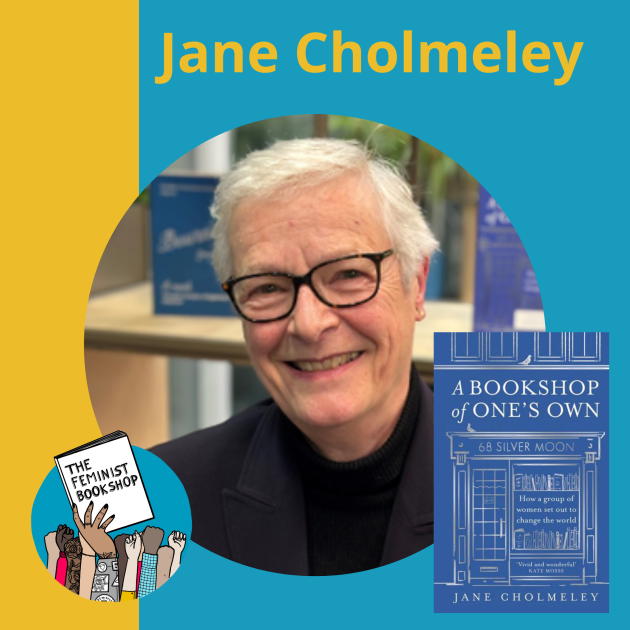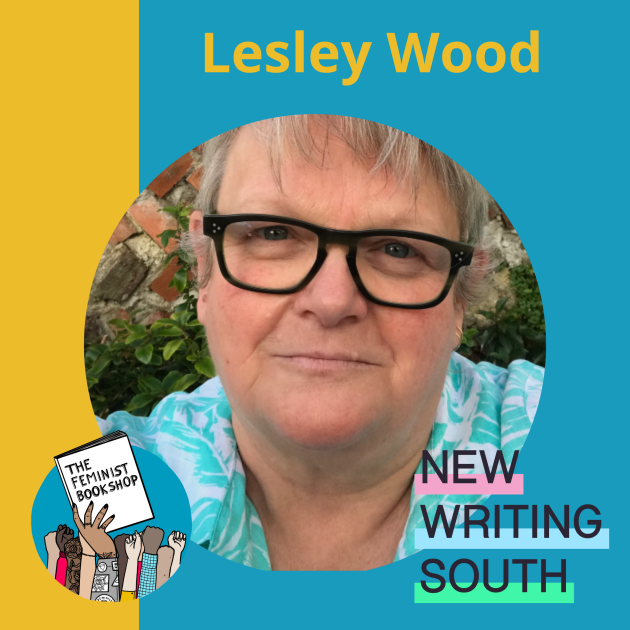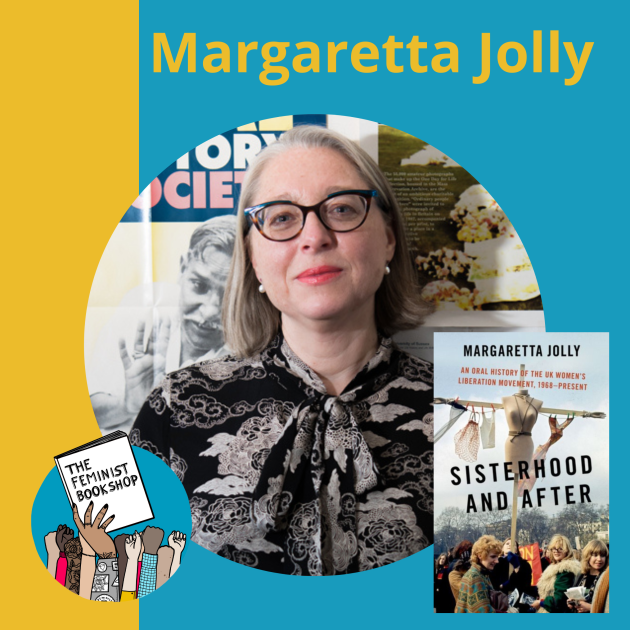Hear more from Ruth Wainwright, founder of The Feminist Bookshop, in Brighton on her personal reflections and inspirations as a bookseller with a mission. https://thefeministbookshop.com/blogs/tfb-blog/purpose-and-profit-in-feminist-bookselling

“A woman must have a money and a room of her own if she is to write fiction.” Virginia Woolf
And a feminist bookshop must have the same, if it is to share diverse voices, support favourite authors, be a place of discovery and joy. But how do we balance purpose and profit? Is it possible to fight against capitalism at the same time as asking customers to pay for goods? Can the feminist book trade survive in the face of retail giants like Amazon?
To explore these questions and so much more, we were delighted to welcome Jane Cholmeley, co-founder of Silver Moon, to The Feminist Bookshop. In her new book, A Bookshop of One’s Own, Jane shared what it was like to start a feminist bookshop in the 1980s against a backdrop of homophobia and misogyny and to grow it into Europe’s biggest women’s bookshop, while contributing to one of the biggest social movements of our time.
Jane was in conversation with Lesley Wood, who has worked in the arts for over 35 years and is Chief Executive of New Writing South. The discussion was chaired by Margaretta Jolly, who directs the Business of Women’s Words project. This research explores how organisations in the Women’s Movement in the 1970s-1990s sought to reconcile financial imperatives with political, artistic and egalitarian commitments.
Jane, Lesley and Margaretta shared their thoughts on how tensions between purpose and profit can be navigated, and how the challenges faced have evolved, morphed and developed in recent years.
This event was hosted in partnership with the University of Sussex, with funding from the Arts & Humanities Research Council (AHRC).
A Bookshop of One’s Own
The captivating true story of an underdog business – a feminist bookshop founded in Thatcher’s Britain – from a woman at the heart of the women’s liberation movement.
An Independent and Stylist Best Non-Fiction Book for 2024
What was it like to start a feminist bookshop, in an industry dominated by men? How could a lesbian thrive in Thatcher’s time, with the government legislating to restrict her rights? How do you run a business when your real aim is to change the world?
Silver Moon was the dream of three women – a bookshop with the mission to promote the work of female writers and create a much-needed safe space for any woman. Founded in 1980s London against a backdrop of homophobia and misogyny, it was a testament to the power of community, growing into Europe’s biggest women’s bookshop and hosting a constellation of literary stars from Margaret Atwood and Maya Angelou to Angela Carter. While contending with day-to-day struggles common to other booksellers, plus the additional burdens of misogyny and the occasional hate crime, Jane Cholmeley and her booksellers created a thriving business. But they also played a crucial and relatively unsung part in one of the biggest social movements of our time.
A Bookshop of One’s Own is a fascinating slice of social history from the heart of the women’s liberation movement, from a true feminist and lesbian icon. Written with heart and humour, it reveals the struggle and joy that comes with starting an underdog business, while being a celebration of the power women have to change the narrative when they are the ones holding the pen.

Jane Cholmeley
Jane Cholmeley is a key figure in British feminism and books, the co-founder of Silver Moon Women’s Bookshop, which became the largest of its kind in Europe.
Her 40-year book trade career began at Yale University Press, followed by Macdonald Educational, which was then acquired by Robert Maxwell. She refused to work for him and instead took an M.A. in women’s studies.
Jane opened Silver Moon with her then partner Sue Butterworth and Jane Anger in 1984 and it became a vibrant centre of women’s writing, hosting prestigious events with authors such as Toni Morrison, Maya Angelou, Alice Walker, Jeanette Winterson, Margaret Atwood, and Sandi Toksvig, who nominated Jane Cholmeley as a Gay Icon in the National Portrait Gallery’s exhibition of that name in 2009.
Silver Moon created a safe space for women and proudly made women’s writing central and visible on the best bookselling street in the world.

Lesley Wood
Lesley has worked in the arts for over 35 years in a variety of roles including sound engineer, theatre producer, artistic director and company CEO. She has worked with creative writers of all kinds – fiction writers, life writers, poets, song-writers and playwrights. She, herself, writes grant applications and too-long emails, and is in awe of the storytellers she meets every day at New Writing South.
The Business of Women’s Words
The Business of Women’s Words: Purpose and Profit in Feminist Publishing (BOWW) explores the dramatic story of the feminist publishing revolution that unfolded during the UK Women’s Movements of the 1970s, 80s and 90s, and their legacies for social movement inspired creative industries today. This four-year research project (2018-2021), funded by the Leverhulme Trust, looks at the contrasting histories and fortunes of legendary enterprises such as Virago Press and Spare Rib.
It examines how activists called upon cultural and creative business activities to help promote their aims despite feminists’ general antipathy and sometimes hostility to capitalist methods and ideologies. The research unearths activists’ efforts to infuse purpose with profit and to reconcile business and financial imperatives with political, artistic and egalitarian commitments, bringing life to archival treasures at The British Library. The research brings fresh perspectives to the history of feminism, which has previously focused on identities and campaigns, by considering the ways that feminists’ ethical and socialist economic strategies related to creative and entrepreneurial successes.
The Business of Women’s Words also explores the business investments and state support behind feminist cultural production and the hidden role of personal and private income, transnational networking, collective ‘crowd sourcing’, unpaid time, labour and care.

Margaretta Jolly
Margaretta Jolly is Professor of Cultural Studies in the School of Media, Arts and Humanities, University of Sussex and directs the University’s Centre for Life History and Life Writing Research. She is author of Sisterhood and After: An Oral History of the UK Women’s Liberation Movement (OUP, 2019), based on the archive she helped create in partnership with the British Library. She leads the research project The Business of Women’s Words: Purpose and Profit in Feminist Publishing.


Leave a Reply